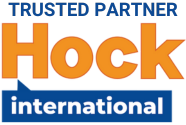Within financial leadership, ethics and integrity form the fundamental pillars supporting trust, credibility, and success. In a world where the stakes are high and the complexities of business operations are ever-evolving, the role of ethical financial leadership becomes not just desirable, but imperative. In this comprehensive exploration, we delve into the significance of ethics in accounting, provide an overview of the US CMA (Certified Management Accountant) standards, and shed light on the critical role CMAs play in upholding professional standards.
Table of Contents
The Importance of Ethics in Accounting
At its core, ethics is not merely a set of guidelines; it represents the moral compass guiding professionals in their decision-making processes. In the domain of accounting, where professionals are entrusted with sensitive financial information, ethical conduct is paramount. Upholding ethical principles such as integrity, objectivity, confidentiality, and professional competence is not just a matter of professional obligation; it’s a cornerstone of maintaining the integrity and credibility of financial information.
Overview of US CMA Standards
The US CMA designation signifies a pinnacle of expertise in financial management and strategic planning. Certified Management Accountants adhere to rigorous ethical standards outlined by the Institute of Management Accountants (IMA). These standards encompass a holistic framework, emphasizing competence, confidentiality, integrity, objectivity, and professionalism as the pillars of ethical conduct in financial leadership.
Role of CMAs in Upholding Professional Standards
Certified Management Accountants serve as stewards of ethical behavior in the workplace, ensuring adherence to regulatory requirements, providing invaluable financial analysis and planning services, and maintaining a steadfast commitment to professional competency. They embody ethical leadership, leading by example, and nurturing a culture of integrity within their organizations.
Emphasizing Accountability and Responsibility
Accountability and responsibility are not just buzzwords; they are intrinsic components of ethical leadership. CMAs hold themselves and their colleagues accountable for their actions, championing transparency and honesty in financial reporting and decision-making processes. They recognize the profound impact of their roles on stakeholders and uphold their fiduciary duties with unwavering dedication.
Integration of Ethical Considerations
Ethical considerations must permeate every facet of financial leadership, from strategic planning and budgeting to risk management and compliance. CMAs prioritize ethical conduct in all business endeavors, safeguarding the interests of stakeholders and fostering trust in the profession. They recognize that ethical lapses can have far-reaching consequences and remain steadfast in their commitment to upholding moral principles.
Ethical Leadership in Practice
Ethical leadership transcends mere compliance with rules and regulations; it entails making principled decisions even in the face of adversity. CMAs exemplify ethical leadership by adhering to moral principles, cultivating a culture of accountability, and promoting ethical behavior at every level of the organization. They recognize that ethical dilemmas may arise and approach them with integrity, seeking guidance when necessary and prioritizing the long-term interests of stakeholders above all else.
Challenges and Ethical Decision-Making
Ethical decision-making is often fraught with complexity, particularly in situations where competing interests are at play. CMAs navigate these challenges with integrity and transparency, weighing the implications of their actions and prioritizing ethical considerations above personal gain. They recognize that ethical dilemmas may not always have clear-cut solutions and approach them with humility and a commitment to doing what is right.
Read More : https://uniqueglobaleducation.com/us-cma-benefit/
Conclusion
Ethics and integrity are the cornerstones of effective financial leadership. The US CMA standards set a lofty benchmark for ethical conduct, underscoring the importance of accountability, responsibility, and ethical leadership in the profession. Certified Management Accountants play an indispensable role in fostering trust, transparency, and credibility in financial management practices. As businesses navigate the complexities of an ever-changing landscape, ethical financial leadership remains essential for sustainable growth, success, and the preservation of trust in the financial industry.



